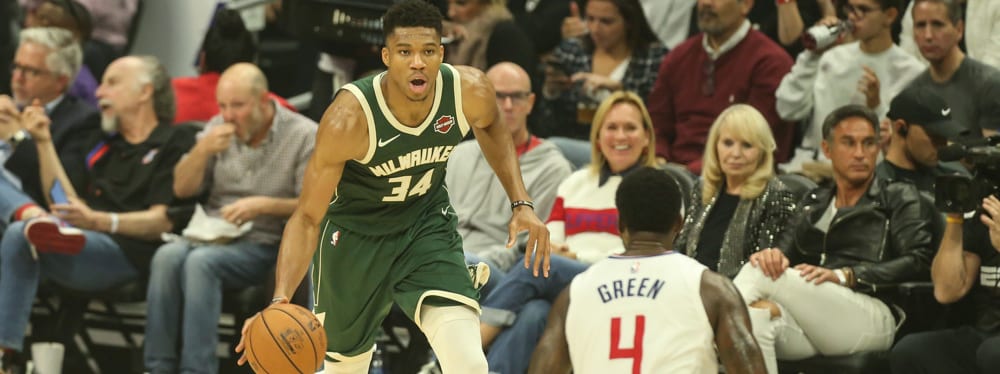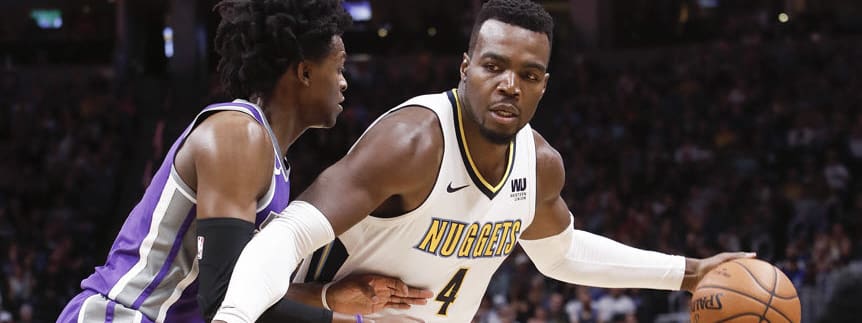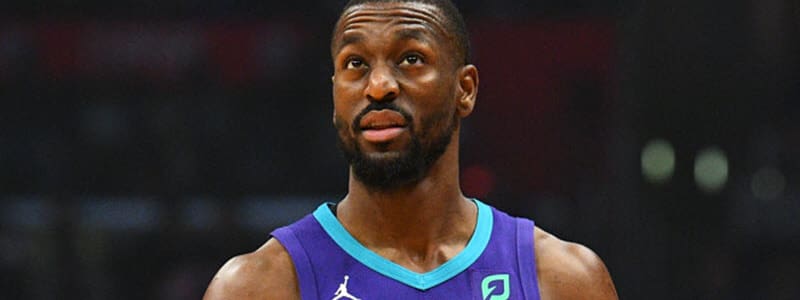Recent RotoWire Articles Featuring Jerryd Bayless
See More
After missing most of the 2016-17 campaign with an injury, Bayless was hoping to put together a bounce-back showing this past season. However, he wound up playing just 39 total games, as he fell completely out of the rotation in the second half of the year. Bayless was actually a DNP-CD for the final 30 games of the regular season and he also saw two total minutes in the team's two playoff series. A substantial role likely isn't going to present itself in the coming season either, considering Bayless appears to be heading into an even more crowded backcourt. Ben Simmons and J.J. Redick are locked in as starters, T.J. McConnell should see valuable reserve minutes and Markelle Fultz is apparently healthy and ready for a full season of backcourt play. As a result, Bayless could be stuck on the outside looking in for a rotation spot. He'll provide some veteran leadership off the bench, but his days of being a Fantasy asset are numbered.
When Bayless joined the 76ers before the 2016-17 season, the team was in a much different place than it is now. Bayless, then a 28-year-old journeyman joining his seventh team in nine years, was the favorite to claim the starting point guard position. He signed a three-year, $27 million dollar contract after putting together the best season of his career for the Bucks, averaging 10.4 points, 3.1 assists, and 1.9 threes – on 43.7 percent shooting from behind the arc – in 28.9 minutes. However, Bayless hurt his wrist in camp, and only appeared in three games before re-aggravating the injury and requiring season-ending surgery. Bayless played well in those three games, running the offense smoothly and improving upon his previous season’s statistics, but alas, it was only for three games. Now that the 76ers have used their first overall draft pick to select point guard Markelle Fultz, the starting point guard position is probably out of reach for Bayless. He may not even be the primary backup, as the team has indicated that it wants to use 2016’s first overall pick Ben Simmons as a point guard, too. If Bayless can stay healthy, he will probably be the first traditional point guard off the bench, though that role could potentially amount to less than 20 minutes per game, or possibly even less than 15.
Bayless has bounced around the league as a backup combo guard for his eight seasons as a pro, but the 28-year-old will get his first shot at a full-time starting role in 2016-17 after inking a three-year, $27 million contract with the 76ers this offseason. He earned the big payday by turning in a career-best campaign with the Bucks while serving as a sixth man and occasional starter, averaging 10.4 points, 3.1 assists, 2.7 rebounds and 0.9 steals per game while shooting a superb 43.7 percent from three-point range. Bayless’ efficiency from the field and downtown figures to take a hit with the 76ers planning to deploy him as one of their primary scorers and distributors rather than a complementary option, but he’s nonetheless poised to turn in his best counting stats production of his career thanks to an expected spike in his usage rate. While he’s slated to start at point guard and see most of his action at that position, Bayless’ prowess from distance will also allow him to log time alongside backup point guards T.J. McConnell and Sergio Rodriguez, likely putting him in line for more than 30 minutes per contest.
Entering the second season of his two-year deal with the Bucks, and his 10th year in the league, Bayless remains strictly a bench option in an increasingly crowded backcourt. As a result of the Bucks adding Greivis Vasquez and drafting Rashad Vaughn, Bayless' production may diminish. His numbers were largely unremarkable in 2014-15, as he averaged 7.8 points, 3.0 assists, and 2.7 rebounds in 77 games. His 43 percent field goal percentage was a hair above his career average, but his ability to produce from three-point range was an issue. A career 35 percent shooter, Bayless shot just 31 percent last season and was especially poor down the stretch. Bayless does have the veteran experience to produce when called upon and can provide some leadership and maturity behind a very young starting five, but if his jump shot isn't falling, he struggles to be a productive offensive option. He'll primarily compete with Vasquez - as well as O.J. Mayo, to a lesser degree - for minutes, and given Jason Kidd's seemingly ever-changing rotations, whichever of the two has the hot hand could end up seeing the lion's share of the minutes on a given night.
After splitting last season between the Grizzlies and Celtics, Bayless will join his sixth team in seven years. He began last season with the Grizzlies where he averaged 8.1 points, 2.1 assists, and 1.9 boards in 21 minutes per game. After being shipped to Boston in a deal that brought Courtney Lee to Memphis, Bayless' numbers slightly improved, as he recorded 10.1 points and 3.1 assists over the season's final 41 games. While his shooting percentage (40% cumulative) leaves much to be desired, he's never been great inside the arc (career 44% 2Pt FG) and makes up for it with plus three-point shooting. Bayless shot just under 36 percent from deep last season but knocked down nearly 40 percent of his attempts as a member of the Celtics. In Milwaukee, Bayless will likely be asked to come off the bench, a role he's become accustomed to since entering the league with the Blazers in 2008-09. However, his ability to play both guard positions should provide ample opportunity to see consistent minutes. While Bayless has played 63 percent of his career minutes at the point guard spot, he played point guard just 25 percent of the time while with the Celtics. He'll compete with Brandon Knight, Giannis Antetokounmpo, Nate Wolters, Kendall Marshall, and O.J. Mayo for playing time in a backcourt stocked with fairly underwhelming talent.
Bayless got plenty of run as the top reserve guard in his first season with the Grizzlies, averaging 22 minutes per game as a combo guard. Locally, it was viewed surprising that he exercised his player option, but he did so one day after the franchise hired Dave Joerger to replace Lionel Hollins as head coach. That indicates something about the Bayless/Hollins dynamic last season. He's a bit of a tweener, but Bayless is the closest thing they have to a backup for Mike Conley at point guard. Entering the final year of his contract before becoming an unrestricted free agent, Bayless will be part of the rotation and has an opportunity to earn a good contract if he can evolve into an efficient offensive player.
Injuries limited Bayless to 31 games in 2011-12, but he enjoyed the best statistical line of his four-year career when on the court. He averaged 11.4 points and 3.8 assists in just under 23 minutes per game for the Raptors. The Grizzlies signed him to a two-year contract in free agency, and he should be the team’s primary guard off the bench. He should take O.J. Mayo’s spot in the rotation, but Bayless is a much more adept ball handler than Mayo was, so he could see more of the one than Mayo did. Bayless’ 42.3 percent shooting from three-point range in 2011-12 would have led the Grizzlies, so he should see more opportunities from downtown.
This combo guard is extremely gifted. He's young, smart, tenacious and talented. He spent his first three years with Portland and New Orleans where he had decent numbers considering he never averaged more than 20 mpg. When he came to Toronto last season, he had a career year, posting 10.0 ppg, 2.5 rpg and 4.0 apg in just over 22 mpg. He's splitting point-guard duties with Jose Calderon, but head coach Dwane Casey has made it clear neither is guaranteed the bulk of the minutes. Good health and high productivity will determine who wins more minutes, but Bayless is looking like he's really coming into his own. Don't be surprised if he has another career year and trumps 30 year old Calderon to take the starting job at some point this season.
Bayless is a tweener, a la Leandro Barbosa and Ben Gordon, with a skillset better suited for shooting guard but a body that limits his ability to defend anything but opposing point guards. As such, he'll back up starter Andre Miller at the point this season, getting 15-20 minutes per game -- i.e. not enough to make himself fantasy relevant.
Baylesss' rookie season was rather forgettable. After entering the season with tons of hype, he managed to appear in only 53 games, constantly falling out of the rotation. It looks like Bayless will once again enter the season buried on the Blazers' depth chart; he's third in line for minutes at both guard positions and will likely need an injury to free up space. Still, he showed flashes of his lottery pedigree last season and should be monitored throughout the season.
The 11th pick of the draft, Bayless enters the NBA coming off a season in Arizona in which he averaged 19.7 ppg as a freshman. He followed that up by dominating the Vegas Summer League, averaging nearly 30 ppg and being named the league’s MVP. However, Bayless isn’t really a point guard, as he’s more of a scorer than a passer, consistently putting up poor assist to turnover ratios, so it remains to be seen where exactly he fits into Portland’s backcourt. He’ll battle Steve Blake and Rudy Fernandez for the starting job next to Brandon Roy but could see solid minutes even if it’s coming off the bench during his rookie year.
The Trailblazers may have made the steal of the draft when they acquired Bayless from the Pacers. Bayless was projected to go as high as top-five in the lottery, but he fell all the way down to the 11th overall selection. A collective thud could be heard across the NBA as general managers smacked their heads in disbelief, watching Bayless dominate the NBA Summer League. The shoot-first guard took home MVP honors in Las Vegas, averaging 29.8 points on 48.5 FG shooting. He will have to battle Fernandez and Outlaw for shots with the second unit, but is worth a late-round flier in most leagues.












